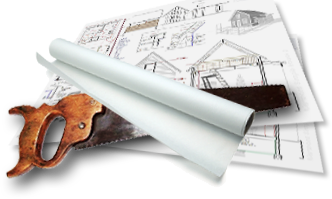For first-time homebuyers, purchasing a property is both exciting and nerve-wracking. After months of searching, you finally find a home that feels right. But before signing the dotted line, there’s one crucial step that can protect you from unexpected surprises: the home inspection.
A home inspection is a professional evaluation of the property’s condition. It helps buyers understand potential issues—from hidden structural damage to outdated electrical systems—that could impact both safety and finances. Skipping or rushing through this step is one of the most common mistakes first-time buyers make.
Why Home Inspections Matter
While a house may look perfect during a showing, appearances can be deceiving. Inspections reveal problems that are not visible to the untrained eye, such as foundation cracks, plumbing leaks, or roofing concerns. These findings can give you leverage in negotiations, allowing you to request repairs, secure a price reduction, or even walk away if the problems are too severe.
In addition to a physical walk-through, conducting a property search by address before inspection day can provide valuable background information. Ownership records, past permits, and renovation history can help inspectors focus on areas of concern and ensure nothing is overlooked.
What Inspectors Typically Evaluate
A standard home inspection covers the most critical aspects of the property, including:
- Roof and Exterior: Condition of shingles, gutters, siding, windows, and drainage.
- Foundation and Structure: Signs of cracks, settling, or water intrusion.
- Plumbing Systems: Water pressure, leaks, and age of pipes.
- Electrical Systems: Wiring safety, outlets, circuit breakers, and overall capacity.
- Heating, Ventilation, and Air Conditioning (HVAC): Functionality and remaining lifespan.
- Interior Spaces: Walls, ceilings, floors, and insulation.
- Attic and Basement: Ventilation, moisture, and signs of pests.
Some inspectors may also provide thermal imaging or advanced testing to detect hidden issues, such as mold growth or insufficient insulation.
Additional Inspections You May Need
Depending on the property’s location, age, or unique features, additional specialized inspections may be recommended. These can include:
- Radon Testing: Especially important in certain geographic areas.
- Mold Inspection: Identifies hidden moisture problems.
- Pest Inspection: Looks for termites or other destructive infestations.
- Sewer Line Inspection: Common in older homes with aging infrastructure.
- Chimney Inspection: Essential for houses with fireplaces.
While these come with extra costs, they can save thousands of dollars in future repairs.
How to Choose the Right Home Inspector
Not all inspectors are equal, so it’s worth doing your research. Look for licensed professionals with certifications from recognized organizations such as the American Society of Home Inspectors (ASHI) or the International Association of Certified Home Inspectors (InterNACHI).
Reading reviews, asking for referrals, and interviewing potential inspectors about their process can help you select someone thorough and trustworthy.
Understanding the Inspection Report
After the inspection, you’ll receive a detailed report outlining the property’s condition, supported by photos and recommendations. For first-time buyers, these reports can feel overwhelming. It’s important to focus on major concerns that affect safety or require costly repairs, rather than cosmetic issues that can be addressed later.
If you’re planning future upgrades, the inspection can also help shape your renovation plan by highlighting which areas may need immediate attention versus those that can wait until later.
Discuss the findings with your real estate agent to determine whether to negotiate repairs, request a seller credit, or move forward as is.
When to Walk Away
Sometimes inspections uncover problems that are deal-breakers, such as severe structural issues, unsafe wiring, or extensive water damage. While it can be disappointing, walking away is often the smarter financial decision. Remember, there will always be other homes, but ignoring significant red flags could leave you with ongoing expenses and stress.
Final Thoughts: Protecting Your Investment
For first-time homebuyers, a home inspection is not just a formality—it’s a safeguard against unexpected costs and potential safety hazards. By combining a professional inspection with research, buyers gain a more complete picture of the property before committing.
Taking the time to carefully evaluate a home ensures peace of mind, protects your investment, and helps you step confidently into homeownership.








